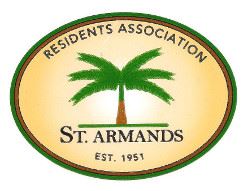| St. Armands Residents Association |
- Home
- Issues
- Rental Abuses
- Hotel House Overview
Hotel House Overview
Rental Abuses are Hurting Neighborhoods and Residents | In Florida, and throughout the US and around the world, especially in tourist areas, vacation rental issues are often described as hurting the character of neighborhoods, the quality of life of the people who reside there, and the affordability of housing. In the City of Sarasota’s barrier island neighborhoods, the worst abuse is from properties in single and multi-family zones that are being rented to large groups of people who do not meet City’s requirement of “household living” which requires family occupancy or that there be no more than four unrelated persons per dwelling unit. |
High Occupancy is NOT Residential Use | Residents refer to these high-occupancy rental properties as Hotel Houses. The frequent noise, unruly behavior, parking and other nuisances stemming from these large groups is not consistent with the prescribed use of these properties in City zoning code. While any City resident should be allowed to have guests and throw parties, a Florida Court of Appeals has ruled that "the frequency and intensity of large groups at a rental property is not typical residential usage as measured by common practice" (Bennett v. Walton Cnty., 2015 Fla. LEXIS 2745 Fla., Dec. 9, 2015). Click here to read the full ruling. |
The City of Sarasota’s Vacation Rental Ordinance | While Florida Statute prevents local governments from prohibiting vacation rentals, from limiting their frequency or duration, or from classifying them as commercial businesses, many municipalities have successfully regulated them by limiting their occupancy and by requiring property owners to register with local authorities. Whether a property is owner-occupied or rented out, the use of that property must still conform to the table of allowed uses for a residential zone. Example of the issue: Multiple families are prohibited by city code from living together in a single-family zone, but people are renting to multiple families. More than four unrelated persons are prohibited by city code from living together in a single-family zone, but people are renting to more than four unrelated persons. And people might not even know that they're doing this: they, or their rental agencies, either aren't asking, or don't have the controls in place to ensure that the make-up of rental groups complies with city codes. On May 4th, 2021, the City Commission of the City of Sarasota unanimously passed a Vacation Rental Ordinance that was modeled after those ordinances successfully implemented in several other Florida communities. |
Who is Impacted by the Vacation Rental Ordinance? | You are only affected by the ordinance if you rent out your entire house (not a condo, not a room in your house) for less than 30 days, and if you do that at least three times a year. That is the State of Florida's definition of a vacation rental. If that's not what you're doing, then the ordinance does not apply to you. Condos are excluded because they are governed by the covenants, conditions and restrictions of their homeowners’ associations which are not constrained by Florida Statute with regard to vacation rentals. |
Are you Operating a Vacation Rental Lawfully Today? | If a landlord was renting out a property as a vacation rental at the time the city's vacation rental ordinance was passed, there was already a list of requirements in place that landlords had to comply with per existing law. Since landlords were already supposed to be doing them, providing documentation that they were doing them should not have been a burden. Here's the list with some helpful links:
The city's vacation rental ordinance gave landlords a several month period to comply. |
The Occupancy Limit | The most important thing that the city's vacation rental ordinance did was to impose an occupancy limit on vacation rentals that went into effect on June 1, 2022. In a single family zone (RSF), the occupancy limit is two persons per bedroom plus two more, or 10 persons, whichever is less. In a multi-family zone (RMF), the occupancy limit is two persons per bedroom plus two more, or 12 persons, whichever is less. Vacation rentals that were operating lawfully (see previous list) when this ordinance was passed (on May 4, 2021) got a temporary 16-person occupancy limit through Dec. 31, 2023, followed by a temporary 14-person occupancy limit through Dec. 31, 2024. In all zones, children under age six do not count toward the occupancy limit. These occupancy limits only apply between the hours of 10pm and 7am. You will not be allowed to advertise that you can sleep more people in beds than the occupancy limit allows. The vacation rental owner is liable for any violations and therefore they (or a designated responsible party, see below) must make sure that renters understand and obey the occupancy limit. |
The Rental Registration Program | The ordinance adds some additional responsibilities that landlords never previously had to do:
|
